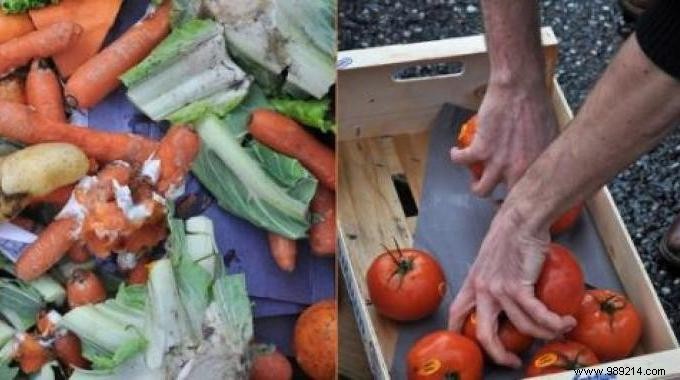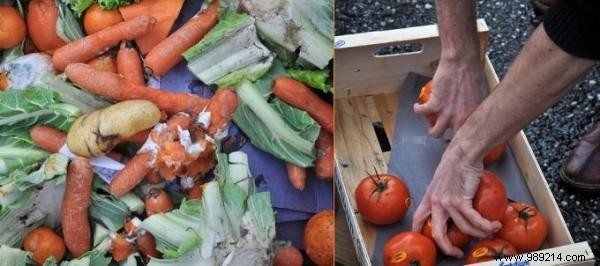
Have a bin compost in your garden is an economical trick that allows you to transform household waste into natural fertilizer of great wealth.
Know that nearly 40% household waste is compostable waste .
Your trash can therefore easily become an important natural and free source of fertilizer for your garden.
It is a process of fermentation of organic waste that will transform it into a material similar to compost, odorless and very rich for the garden.
Why not install a compost bin in the garden and start putting our organic waste in it now?

1. Grass clippings, fireplace ashes, sawdust and wood chips.
2. Leftover vegetables and fruit (skins, peelings, stems, etc.).
3. The ham rind and cheese crusts.
4. Leftover bread, corn on the cob, eggshells.
5. Straw, tissues, paper towels and unprinted paper.
6. Coffee grounds, coffee filters and sachets of infusions such as teas and herbal teas.
7. Shells of hazelnuts, peanuts and walnuts.
Good to know:p The smaller and finer the waste added to your compost bin, the faster the transformation process will be.
1. Leftover meat and fish.
2. Dairy products.
3. Fats, sauces and cheese.
4. Any printed paper (the ink is very chemical).
5. Weeds, diseased plants...
Fertilizers and all products purchased commercially to enrich the soil of our vegetable garden are very expensive. Count at least 7 to 8 € per kilo.
What you need to know is that very often, you will have to buy different fertilizers depending on the type of plantation. A fertilizer for the tomatoes, another for the strawberries then, for my roses, my flowers... The bill can therefore very quickly become heavy!
For example, here, if I buy the 4 varieties mentioned above, my bill will amount to more than 40 €!
When you know that plants, seeds and other bulbs already cost an arm and a leg, why bother buying expensive, polluting products (well, OK, organic fertilizers are easy to find now!). By recycling our waste into compost, we obtain a versatile fertilizer, really rich and especially free!